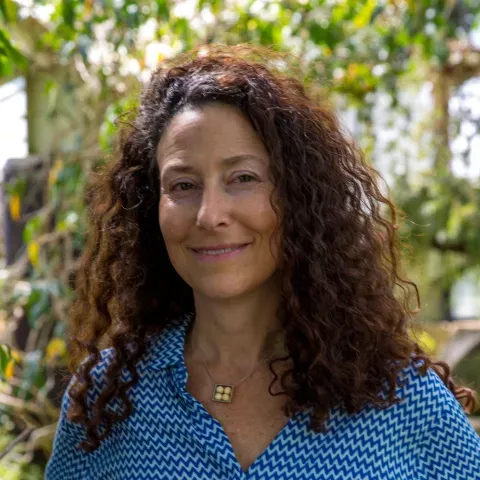Dr Jill Kowal
Honorary Research Associate

Department
Team
Specialism
Mycorrhizal symbioses, plant-fungus interactions, bryophyte propagation, fungal isolation culture techniques, vegetation and restoration ecology, heathlands
My research focuses on mycorrhizal early land plants and their fungal symbionts both in culture and nature. I aim to better understand the function of these mutualisms to contribute to the conservation of rare plant species and their vegetation communities. Using a multi-disciplinary approach (including field experiments, plant tissue and cytological fungal colonisation analytic techniques, molecular ID, soil chemistry and atmospheric pollution measures), we can begin to unravel the dynamic below ground and atmospheric influences contributing to fungal colonisation strategies and plant responses (and equally, a plant's interest in hosting and respective fungal responses).
My current study focuses on the rare heathland Marsh Clubmoss (Lycopodiella inundata) which is endangered in the UK and threatened to varying degrees across Europe. As far is we know, it is only colonised by Mucoromycotina fungi, providing a unique view to the ecological function of this fungal tribe. From an evolutionary perspective, this early-vascular plant bridges bryophytes with later-diverging vascular plants. The potential application gleaned from better understanding these nutritional exchanges for both restoration ecology and agricultural innovations are just beginning to unfold. Exciting questions lay before us to test and collaborate both in the laboratory and real world settings.
- PhD, Biological Sciences, Imperial College, London, 2016
- MSc, University of Reading, 2011
- Diploma in Horticulture, Royal Horticulture Society, Capel Manor College, 2003
- MSc, New York University, 1992
- BSc/BBA, University of Wisconsin-Madison, 1988
Kowal, J., Arrigoni, E., Jarvis, S., et al. (2022)
Atmospheric pollution, soil nutrients and climate effects on Mucoromycota arbuscular mycorrhizal fungi.
Environmental Microbiology
Hoysted, G.A., Kowal, J., Pressel, S. et al. (2021)
Carbon for nutrient exchange between Lycopodiella inundata and Mucoromycotina fine root endophytes is unresponsive to high atmospheric CO2.
Mycorrhiza
Kowal, J., Arrigoni, E., & Lane, S. (2020)
Blue Ink-staining Procedure for the Observation of Fungal Structures Inside Roots of Two Disparate Plant Lineages.
Bio-Protocol 10(20): e3786.
Kowal, J., Arrigoni, E., Serra, J. & Bidartondo, M. (2020).
Prevalence and phenology of fine root endophyte colonization across populations of Lycopodiella inundata.
Mycorrhiza 30: 577–587.
Hoysted, G.A., Jacob, A.S., Kowal, J., et al. (2019)
Mucoromycotina fine root endophyte fungi form nutritional mutualisms with vascular plants
Plant Physiology 181: 565–577.
Kowal, J., Pressel, S., Duckett, J.G., Bidartondo, M.I.& Field, KJ. (2018)
From rhizoids to roots? Experimental evidence of mutualism between liverworts and ascomycete fungi
Annals of Botany 121: 221-227.
Hoysted, G.A., Kowal, J., et al. (2017)
A mycorrhizal revolution
Current Opinion in Plant Biology 44: 1-6.
Kowal, J., Pressel, S., Duckett, J.G. & Bidartondo, M.I. (2016)
Liverworts to the rescue: an investigation of their efficacy as mycorrhizal inoculum for vascular plants
Functional Ecology 30: 1014-1023.